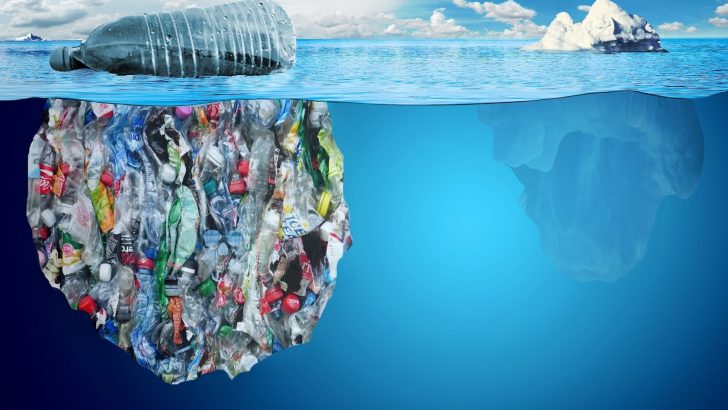The View
Stewardship of the environment is a key Catholic value. Sometimes it is frustratingly hard to implement this value as families and individuals.
I am sure that most of us were horrified by the recently published photos of Little Skellig island in Kerry. Gannets are plucking from the sea plastic debris, such as parts of fishing nets, and using them to build nests.
Pope Francis’s remarks about turning the world into “an immense pile of filth” have rarely seemed so appropriate.
Plastic is a great invention in many ways. For example, lightweight plastic packaging reduces carbon emissions because goods are lighter to transport. Airtight plastic wrapping also reduces food spoilage and waste.
However, the negative aspects of plastic are becoming a worldwide problem. Researchers from NUI Galway conducted a study on deepwater fish located in the northwest Atlantic, thousands of kilometres from land and 600m down in the ocean, and found that 75% of them had ingested tiny bits of plastic known as microplastics.
Two Austrian scientists discovered last year that humans have microplastics in their systems, too. They analysed human stool samples and their results suggest that people are passing up to 800 to 1,000 microplastics a day. Is it harming us? As my father-in-law would have said, it is unlikely that it is doing us any good.
Havoc
But whether it is the Great Pacific garbage patch, which despite its name consists of mostly invisible plastic particles, or strangled turtles, or dying marine life, plastic is wreaking havoc on our environment.
The government recently banned single-use plastics like cups and coffee stirrers from use in the public and civil service.
It is a good gesture but that is all it is. Plastic pollution in our oceans is at catastrophic levels as acknowledged by Pope Francis in September 2018, when he declared that “We cannot allow our seas and oceans to be littered by endless fields of floating plastic.”
But have you ever tried to reduce your own level of plastic waste? It is very difficult and quite expensive. For example, loose fruit and vegetables are often more expensive than ones that are packaged.
Often the packaging is not recyclable. It is not just fruit. A trip to the supermarket leads to a mound of unnecessary packaging being discarded. Even if it is recyclable it was often not necessary in the first place.
Theorists of change say that real, lasting shifts happen when there is a change in identity”
The journalist Victoria White has suggested that all goods in non-recyclable packaging should have large notices printed on it alerting consumers.
But she also makes the more important point that we need to reduce plastic use at source.
It drives me crazy that cosmetics like foundation often come wrapped not only in a pretty but entirely useless box but also a layer of cellophane. It seems to be an attempt to make the product more attractive and it obviously works because it is an additional cost and manufacturers would not be doing it unless it paid off in sales.
Consumer power is a real source of influence which could be used to reduce unnecessary packaging. Again, banding together as consumer lobbyists may be just tinkering.
However, it could also be a relatively painless step for people that encourages them to see themselves as more green and therefore open to taking other environmentally-friendly decisions.
Theorists of change say that real, lasting shifts happen when there is a change in identity. Once a person begins to believe that he or she is a particular type of person, change is much more likely to last.
Take a person who is very sedentary. At first, every decision to take exercise (at least after the initial honeymoon period) takes effort. But once the person begins to think, “I am the kind of person who exercises,” the habit has passed a threshold and is much more likely to be automatic.
Taking small steps towards being a better steward of the environment might work the same way.
Personal change is not enough. Systemic change is needed at a political level too.
But the fact that plastic is only one aspect of the many environmental challenges facing us means that politicians, like the rest of us, often feel overwhelmed.
Nor is the answer simply to join the Green Party. The tragedy is that by embracing values that negate the value of unborn human life and that have nothing to do with their core environmental message, Green parties across Europe have alienated Christians who could have otherwise constituted a core voter bloc for them.
However, movements like eco-Congregations (eco-congregationireland.com) provide another way of community organising. Based in local parishes, they adopt an eco approach to worship, lifestyle, property and finance management, community outreach and contact with the developing world. This ecumenical movement is a living example of the importance of leading by example and of taking small, concrete steps.


 Breda O'Brien
Breda O'Brien
